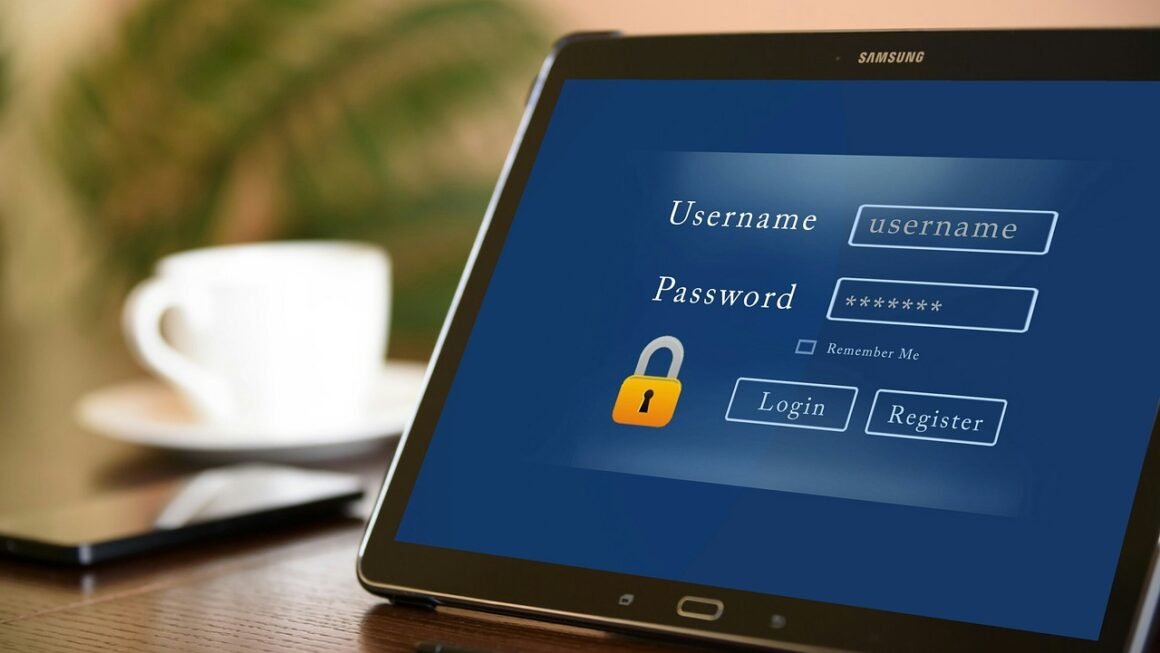Navigating the digital world without robust antivirus software is akin to leaving your front door wide open – you’re just inviting trouble. With the ever-evolving threat landscape, understanding the intricacies of antivirus solutions is crucial for protecting your personal data, devices, and peace of mind. This comprehensive guide will delve into the world of antivirus software, equipping you with the knowledge to make informed decisions about your digital security.
Understanding Antivirus Software
What is Antivirus Software?
Antivirus software is a program or set of programs designed to prevent, search for, detect, and remove software viruses, and other malicious software like worms, trojans, adware, and more. It acts as a digital immune system, constantly monitoring your system for suspicious activity and neutralizing threats before they can cause harm.
How Antivirus Software Works
Antivirus software employs a range of techniques to keep your system safe:
- Signature-Based Detection: This is the most traditional method. Antivirus programs maintain a database of known virus signatures (unique code patterns). When a file or program is scanned, the antivirus compares its code to the signatures in the database. If a match is found, the file is flagged as malicious.
Example: If a newly downloaded file contains code identical to a known ransomware virus signature, the antivirus will quarantine or delete the file.
- Heuristic Analysis: Because new viruses are constantly being created, signature-based detection isn’t enough. Heuristic analysis allows antivirus programs to identify suspicious behavior, even in unknown files. It looks for characteristics commonly associated with malware, such as attempts to modify system files or unusual network activity.
Example: A program that suddenly tries to disable your firewall or encrypt a large number of files will likely be flagged as suspicious, even if it isn’t in the signature database.
- Behavioral Monitoring: This technique focuses on the actions of a program while it’s running. It monitors for suspicious behavior in real-time, allowing the antivirus to detect and stop malware that might evade signature and heuristic detection.
Example: If a program starts injecting code into other processes or attempts to steal sensitive data, behavioral monitoring will trigger an alert.
- Sandbox Testing: Suspicious files can be run in a virtual environment (a “sandbox”) to observe their behavior without risking the actual system. This allows the antivirus to safely analyze the file and determine if it’s malicious.
Example: An emailed attachment that looks suspicious can be automatically run in a sandbox environment to see if it attempts to install malware or contact a malicious server.
Why You Need Antivirus Protection
The Growing Threat Landscape
Cyber threats are becoming increasingly sophisticated and prevalent. According to a report by Cybersecurity Ventures, global cybercrime costs are predicted to reach $10.5 trillion annually by 2025. This highlights the critical need for robust antivirus protection.
Protection Against Various Threats
Antivirus software provides protection against a wide range of threats, including:
- Viruses: Malicious code that replicates itself and spreads to other files or computers.
- Worms: Self-replicating malware that spreads across networks without human intervention.
- Trojans: Malicious programs disguised as legitimate software.
- Ransomware: Malware that encrypts your files and demands a ransom payment for their release.
- Spyware: Software that secretly monitors your activity and collects personal information.
- Adware: Software that displays unwanted advertisements.
- Rootkits: Malware that hides its presence from the operating system.
- Phishing: Deceptive attempts to obtain sensitive information, such as usernames, passwords, and credit card details, by disguising as a trustworthy entity.
Benefits of Using Antivirus Software
- Data Security: Protects your personal files, photos, and documents from being compromised.
- Financial Security: Safeguards your online banking and financial transactions.
- Privacy Protection: Prevents spyware from tracking your online activity and stealing your personal information.
- Device Performance: Keeps your computer running smoothly by preventing malware from slowing it down.
- Peace of Mind: Provides a sense of security knowing that your system is protected against cyber threats.
Choosing the Right Antivirus Software
Key Features to Consider
Selecting the right antivirus software depends on your individual needs and risk tolerance. Consider the following features:
- Real-time Scanning: Continuously monitors your system for suspicious activity.
- Automatic Updates: Ensures that the antivirus software is up-to-date with the latest virus definitions.
- Firewall: Protects your network from unauthorized access.
- Web Protection: Blocks access to malicious websites and prevents phishing attacks.
- Email Scanning: Scans incoming and outgoing emails for malware and spam.
- Ransomware Protection: Specifically designed to detect and prevent ransomware attacks.
- Password Manager: Helps you create and manage strong, unique passwords.
- VPN (Virtual Private Network): Encrypts your internet traffic and protects your online privacy.
- System Optimization Tools: Cleans up junk files and optimizes system performance.
- Multi-Device Support: Protects multiple devices with a single subscription.
Paid vs. Free Antivirus Software
While free antivirus software offers basic protection, paid versions typically provide more comprehensive features and better protection.
- Free Antivirus: Often includes basic scanning, real-time protection, and malware removal. May be ad-supported and lack advanced features.
- Paid Antivirus: Offers more advanced features like a firewall, web protection, ransomware protection, and customer support. Typically provides better overall protection.
Consider your specific needs and budget when deciding between free and paid antivirus software. For basic home use, a free antivirus might suffice. However, for businesses or users who handle sensitive data, a paid solution is highly recommended.
Research and Reviews
Before making a purchase, research different antivirus products and read online reviews. Consider:
- Independent Testing Labs: Look for results from independent testing labs like AV-Test, AV-Comparatives, and SE Labs. These labs conduct rigorous testing to evaluate the effectiveness of different antivirus products.
- User Reviews: Read reviews from other users to get a sense of their experiences with the software. Look for reviews that mention specific features and benefits.
- Comparison Websites: Use comparison websites to compare the features and pricing of different antivirus products.
Maintaining Your Antivirus Protection
Keeping Your Software Updated
It’s crucial to keep your antivirus software up-to-date with the latest virus definitions and program updates. Most antivirus programs offer automatic updates, which you should enable. Outdated software is significantly more vulnerable to threats.
Running Regular Scans
Schedule regular scans of your entire system to detect and remove any hidden malware. A full system scan should be performed at least once a week.
Practicing Safe Browsing Habits
Antivirus software is an essential tool, but it’s not a complete solution. Practicing safe browsing habits is equally important:
- Avoid clicking on suspicious links or attachments in emails.
- Be wary of websites that look untrustworthy.
- Use strong, unique passwords for all your online accounts.
- Enable two-factor authentication whenever possible.
- Keep your operating system and other software up-to-date.
- Be cautious when downloading files from the internet. Only download from trusted sources.
Conclusion
In today’s digital landscape, antivirus software is no longer optional – it’s a necessity. By understanding how antivirus software works, choosing the right solution for your needs, and practicing safe online habits, you can significantly reduce your risk of becoming a victim of cybercrime. Remember to keep your software updated, run regular scans, and stay informed about the latest threats. Investing in robust antivirus protection is an investment in your security and peace of mind.



